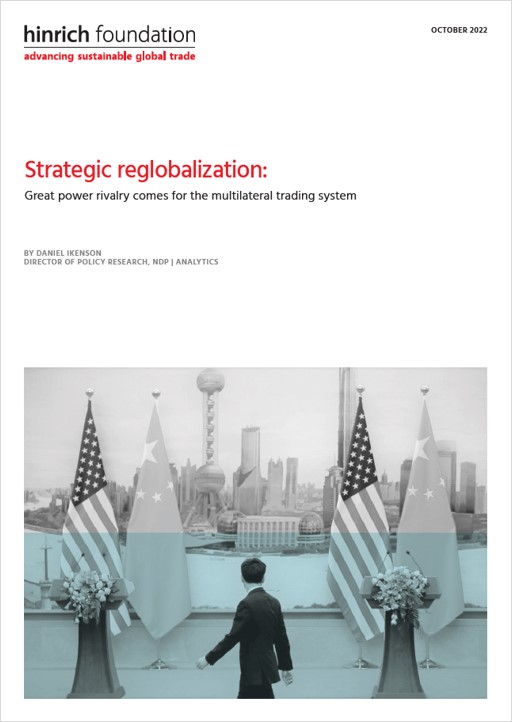Trade and geopolitics
Strategic reglobalization: Great power rivalry comes for the multilateral trading system
Published 26 October 2022
Geopolitical and national security considerations will define what is possible – and permissible – in the realm of international trade and investment, and the determinants of those considerations will be fluid. As the world's largest economies engage in a strategic competition, the central premise which the rules-based trading system was founded on may render a lost cause.
The broader conditions necessary to sustain a rules-based multilateral trading system predicated on the principles of “most-favored nation” and “national treatment” no longer exist. The two largest economies in the WTO have committed to courses of action that blatantly disregard these principles and systemically subordinate the trade rules to their hegemonic priorities. To complicate matters further, liberal economies have chosen to supplement their complaints about Chinese state capitalism with their own versions of protectionist policies.
So, how did we get here and what might the future hold? This paper, the fourth in a series of installments by Daniel Ikenson, Director of Policy Research at ndp|analytics, examines the context in which the General Agreement on Tariffs and Trade (GATT) was created and the pressures that its successor organization, the World Trade Organization, is facing. Ikenson discusses the impact of China's economic rise, the US's response, and the growing imperative of national security considerations and of maintaining technological preeminence. Moving forward, Ikenson argues, trade will continue to be an important driver of economic growth regardless of whether the global trading system revives. The importance of trade as a catalyst for growth and peaceful relations will, however, depend on the nature of the emerging reglobalization and whether it is motivated more by carrots or sticks.
© The Hinrich Foundation. See our website Terms and conditions for our copyright and reprint policy. All statements of fact and the views, conclusions and recommendations expressed in this publication are the sole responsibility of the author(s).







